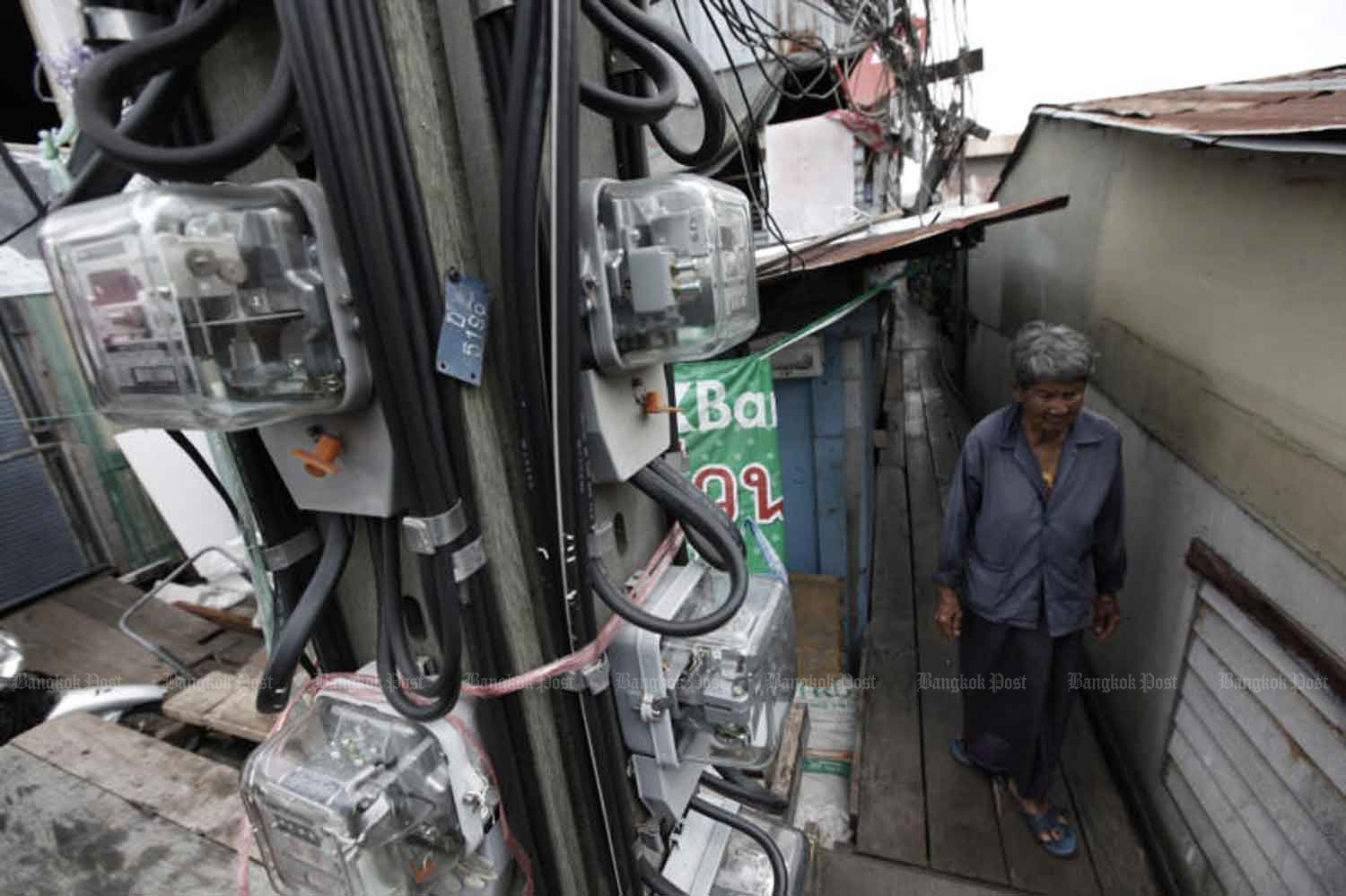
The Energy Regulatory Commission (ERC) is expected to announce a reduction in the fuel tariff (Ft) from May to August on Friday, which will bring down the power tariff rate for households to 4.70 baht per kilowatt-hour unit, from 4.77 baht per unit.
The move follows complaints from people about large spikes in their electricity bills during the summer months. They called on the government to act to reduce their energy costs.
Khomgrich Tantravanich, secretary-general of the ERC, said a panel will meet on Friday to review the fuel tariff rate for May to August after the Electricity Generating Authority of Thailand (Egat) proposed a 28-month moratorium on debt repayments.
The Ft -- which is determined by fuel costs -- is a key element in the power tariff, which is, in turn, used to calculate power bills and is adjusted every four months.
The power tariff is also determined by debts owed to Egat, which posted an accumulated loss of 150 billion baht after subsidising the price of electricity from September 2021 until December last year.
Mr Khomgrich said the panel, which is made up of representatives from various agencies, including the Finance Ministry, will take into consideration public debt and the country's financial discipline requirements when reviewing the rate.
If the panel agrees to cut the Ft, the power tariff rate for the next four months will be 4.70 baht per unit, he said, adding the debt repayments to Egat are unlikely to be postponed further as this would cause liquidity problems for Egat.
About 20 billion baht has been repaid to Egat during January-April, he added.
Kulit Sombatsiri, permanent secretary for energy, said the ministry is considering other steps which could help bring down energy costs after the Budget Bureau and related agencies said there is insufficient budget to subsidise energy costs, estimated at 8 billion baht.
Authorities are looking ahead to the September-December period and have asked PTT Plc to consider stockpiling liquefied natural gas (LNG) for electricity generation, as the price of LNG has fallen to US$11-13 (377-445 baht) per million BTU, from US$47 per million BTU early this year, he said.
He said demand for electricity has soared during the hot season, peaking at 32,212.5 megawatts at 8.44pm on Wednesday.
According to Mr Kulit, electricity bills are charged at a progressive rate, meaning the more electricity a household uses, the more they will be charged.
Political activist Srisuwan Janya on Thursday lodged a complaint with the Office of the Ombudsman, calling for a fact-finding probe into why electricity bills are surging amid claims that the country has an oversupply of electricity in reserve.
He said the current reserve stands at about 60% of total capacity, while the internationally accepted reserve is at 10-15%.
Such a high reserve increases electricity generating costs, resulting in a higher power tariff, he said.
Mr Srisuwan claimed that Egat's purchase of electricity from private power plant operators, despite the huge surplus in reserve, is favouring the energy operators at the expense of consumers.
Government spokesman Anucha Buraphachaisri on Thursday assured electricity prices would go down once the cost of generating power begins to decrease.







